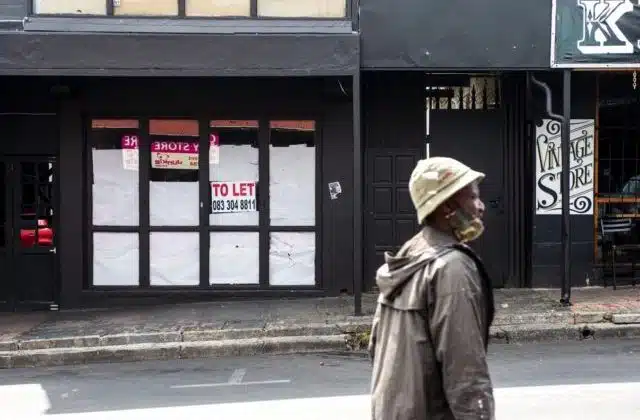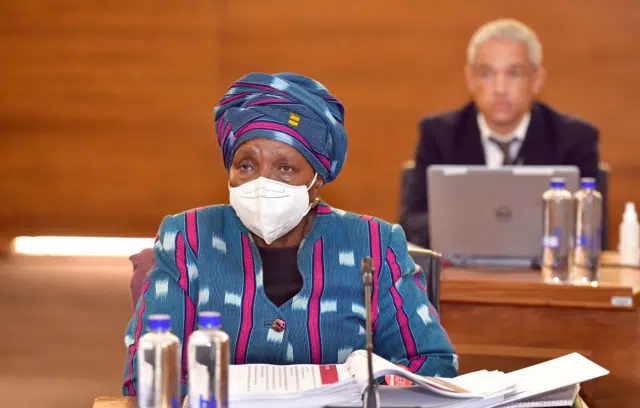
Fourth Covid wave in South Africa – what health experts are saying
As South Africa passes the peak of the third wave of Covid-19 in the country, health experts warn of a fourth wave on the horizon.
President Cyril Ramaphosa eased lockdown restrictions this week, citing fewer Covid-19 infections, most notably in Gauteng. The president, however, cautioned that a slowing in infections does not mean the wave is over but is simply in decline. Some provinces are still experiencing rising numbers, he said.
“There are areas in the country where we still need to be concerned because the rates of infection have not yet shown signs of decline.
“As infections in Gauteng fall, daily new infections in the Western Cape, Eastern Cape and KwaZulu-Natal continue to rise. There has also been a concerning rise of infections in the Northern Cape after a period of relative stability,” he said.
This was echoed by the National Institute of Communicable Diseases (NICD) in South Africa, whose latest report shows that the country is not yet in a ‘post-wave’ period – meaning the third wave is still very much in effect.
The NICD’s modelling predicts that most provinces will have peaked by early to mid-August, with the third wave bottoming out in early September. But some health experts have warned that the low numbers of infections could be short-lived – predicting that a fourth wave could start emerging as early as October.
Wits University vaccinologist professor Shabir Madhi and the head of the South African National Aids Council, Dr Fareed Abdullah, both said as much in a report compiled for the Independent Electoral Commission, investigating the feasibility of holding the 2021 local elections at the end of October.
The report – which has since been adopted by the IEC and used as a basis to postpone the elections – included testimony from Madhi and Abdullah warning that the country faces a resurgence of infections in October, largely due to the delayed vaccine rollout.
Madhi said that for South Africa to avoid a resurgence, the population would have to reach herd immunity against the virus by September, with at least 80% of the most vulnerable population vaccinated.
At the current rate of vaccination, along with widespread vaccine hesitancy among this population group, this is unlikely to be achieved.
Abdullah, meanwhile, said that the waves of infection tend to peak six months apart. He said that the fourth wave, in his opinion, is likely to peak sooner rather than later, and warned that by the end of October, the country will be in the early stages of a fourth wave, with cases showing an upward trend again.
This would put the country on course for a fourth-wave peak somewhere in December.
Covid Christmas
Speaking to the Sunday Times, Professor Francois Venter, the director of Ezintsha at Wits health sciences, expressed similar sentiments. According to Venter, a fourth outbreak of the coronavirus could hit South Africa around November.
He said that future waves of Covid-19 in South Africa are highly dependent on the vaccine rollout – more than just the numbers, but also who is being vaccinated.
Venter said that the government must pay attention to how many older people are being vaccinated. “Vaccinating one 60-year-old is more important than vaccinating two 35-year-olds,” he said.
This is of particular note, given the health department’s new target of vaccinating 35 million people by Christmas, and opening up vaccines to people over 35 in August, and those older than 18 in September.
Venter said that while it would be wonderful if 35 million people received a shot by the end of the year, it wouldn’t be good if many people over 50 years old were still not vaccinated. The vaccine rollout was opened to younger population groups after turnout by those over 60, and then over 50, was lower than anticipated.
The Department of Health said that opening vaccines to younger population groups will not overload its system. It said that there is hope that younger populations will take the older populations with them to get vaccinated.
Vaccine urgency
The government reported an increase in people who received their Covid-19 vaccine on Monday (215,349), taking the total number of administered jabs to 6,613,704.
According to the Department of Health, of the latest distributed shots, 44,470 people received the Johnson & Johnson, while 170,879 received the Pfizer vaccine.
Meanwhile, the Covid-19 death toll has now surpassed the 70,000 mark after 243 more people lost their lives to the respiratory disease.
This means that South Africa has now recorded 70,018 fatalities to date.
In addition, the country detected 5,683 new Covid-19 cases, said the NICD. This takes the total number of laboratory-confirmed cases to 2,383 490, translating to a 24.3% positivity rate.
Gauteng accounted for 1,559 new infections, followed by 1,192 in the Western Cape and 832 in KwaZulu-Natal.
The NICD also noted an increase of 479 hospital admissions in the past 24 hours.



